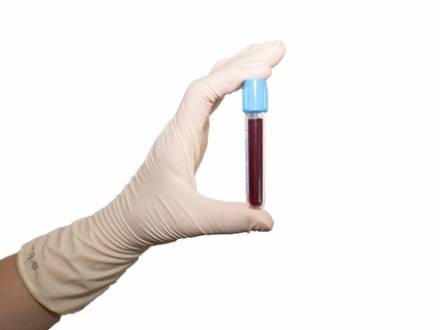Is a Warrant Required for a Maryland DUI Blood Draw?
 Like most states, Maryland has implied consent laws (Maryland Transportation Code Section 16-205.1) that require drivers to consent to a chemical test when under suspicion of DUI. While a driver can refuse a breathalyzer test, there are immediate consequences in the form of a suspended license.
Like most states, Maryland has implied consent laws (Maryland Transportation Code Section 16-205.1) that require drivers to consent to a chemical test when under suspicion of DUI. While a driver can refuse a breathalyzer test, there are immediate consequences in the form of a suspended license.
For a first DUI offense, refusal to submit to a breathalyzer test results in a suspended driver’s license for 270 days, while a second or subsequent DUI refusal can result in two years of suspension. The driver can request an MVA hearing to challenge the suspension and may be allowed to drive with an ignition interlock device.
If you refuse a breathalyzer test, can the police force a blood draw, even in the face of your refusal? The answer to that question is not a simple one, as states attempt to balance law enforcement’s need for evidence with drivers’ Fourth Amendment rights. If you are facing DUI charges, the sooner you speak to a knowledgeable Silver Spring, MD criminal defense attorney, the better your outcome is likely to be.
When Might Law Enforcement Request a Blood Draw?
Requesting a blood draw is relatively rare in Maryland, but it could potentially occur when breath testing equipment is unavailable or malfunctioning. A driver who is suspected of driving while under the influence of drugs (marijuana, prescription medications, cocaine, or other illicit drugs) could be asked to submit to a blood test.
When the driver has caused a serious accident that resulted in the death or life-threatening injury to another person, a blood draw might be requested. In situations where the driver is unable to provide breath due to being unconscious or incapacitated, the police might request a blood draw.
Is a Warrant Required for a Blood Draw?
In virtually every case, a warrant is required to perform a blood draw. Warrantless blood draws are unconstitutional, barring truly exigent circumstances. The one exception is when the driver is unconscious. In this case, Maryland law does allow a warrantless blood draw, but the chances that it will be challenged on constitutional grounds are high.
While a conscious driver can refuse a breathalyzer test, as well as a blood draw or a urine test, a refusal can be introduced during the DUI trial to suggest "consciousness of guilt." In other words, even though a refusal deprives prosecutors of direct evidence of impairment, a jury may wonder why a driver would refuse if he or she was not, in fact, impaired.
Are There Defenses Against Forced Blood Draw Evidence?
If the police obtained a warrant for the blood draw, the warrant may be challenged, particularly if it was not strongly supported by probable cause. The procedure used for the blood draw may be challenged, including the chain of custody and potential lab testing errors.
In some instances, a driver may have health issues that can skew the results of a blood draw, while other times, the arguments against a forced blood draw may be constitutional in nature. The question may become whether the forced blood draw was wholly lawful, or whether it fell under an exception.
Contact a Montgomery County, MD DUI Lawyer
Although blood draws may be allowed under the implied consent law and certain exceptions, constitutional safeguards require that law enforcement follow very strict rules. An experienced Silver Spring, MD DUI criminal defense attorney from The Law Offices of Gerstenfield & Demirji, PC. can evaluate whether the blood draw was legal, challenge test results, and fight to protect your future.
Our lawyers are warm, compassionate, and have excellent relationships with local prosecutors. We are aggressive when necessary and will always look out for your rights. Call 301-589-9500 to schedule your free consultation. We are fluent in Arabic and Spanish.














